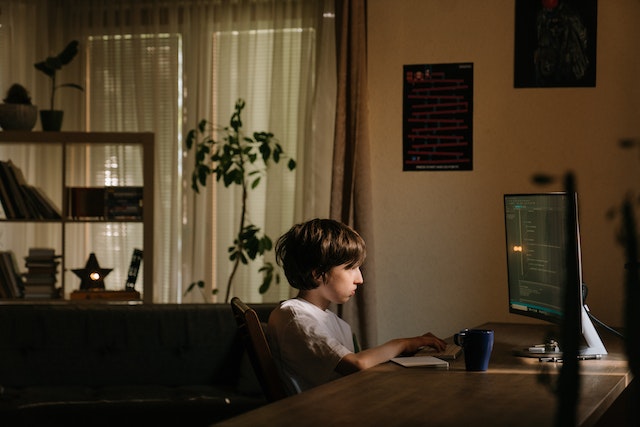When I was Pursuing a Bachelor of Computer Applications, I came to know about the potential of programming. For some reason, my work area has changed, and I am not into programming much. Deep inside, I want my son to learn to code. He is still small, and I am planning to introduce programming to him at the right age. I think the best age should be when he will be 7 or 8 years old.
Programming is going to be the best thing you let your kids learn because, in a world where everything is going to be based on technology, coding can be a great option for your kids. Start them young! Coding for kids helps them to develop computational thinking from a young age, so expose your children to programming from their early years to cultivate their interest in the subject

But, when we talk about introducing programming to kids, the question is what is the right age for that? It must not be too early. As per the learning abilities, research shows that 7-8 years is the right age for kids to start getting a programming education. At this age, they are old enough to understand the fundamentals.
You need to be very careful how you approach the situation. You must not force your child to code. If your child resists, then pull back and approach your kid when he is more comfortable sitting in front of the computer for longer durations.
Ways to Introduce Programming to Your Kids
Teach Coding Basics
Being a computer graduate, I can say that if you want your kids to code, you must go slow. The first thing is teaching the basics in a way that seems fun to them. Also, it is more important to develop their interest in coding. By any chance, if your kid is not at all interested in coding, don’t force him to do it because coding is all about interest and passion. If you don’t have a passion for coding, you cannot be a good programmer.
Your child may have mixed ideas about what coding is all about. There is a lot of math involved, but it is doable. There is a lot of logic, reading and learning involved, but your child doesn’t need to learn it all at once. You can take baby steps, and you should always slow it down when your child keeps failing to understand what is going on.
Teach the fundamentals of what coding really means and what the end game and end goal of coding is. Be careful how you frame the end goal because sometimes there is no solid reason to do anything. For example, you don’t teach your child how to use coloring books so that he becomes a famous artist. Start with simple projects like the “Hello World” lesson so that your child can see the quick results of coding. You should give the basics to him in a way that helps develop his interest in coding which is the first requirement for learning.
Sometimes you can guide him on how to add 2 numbers through code. They already know how to add but they will be so happy to do it by code. Further, you can teach them some of the things doing with code that they have been doing manually. This will boost their interest.
Once your child starts getting interested in coding, he will start grasping things faster.
Beware of Encouragement Through Social Proof
You may like the idea of showing how cool and easy coding is, perhaps by showing examples of other children’s coding skills. Try to remember that a child doesn’t see the world in the same way that we do. Showing other children coding may have no impact at all on your kid because he or she hasn’t developed lateral feelings or empathy feelings. On the other hand, your child may interpret your actions as if you are showing that other people are better than him or her. Or, worse still, those other children have something that he or she doesn’t.
Do consider getting your child involved with Roblox, Mario Maker, or Minecraft. It is fun and helps build a lot of enthusiasm for coding (if a child enjoys the process in general). However, this may backfire in several ways. The most common is that the child wants to spend 10% of the time coding and 90% of the time playing the game, and the more you try to restrict playing, then the more alluring it becomes. Honestly, a 10% time spent coding is fine for a child anyway, but also beware that the child may become so enamored with the game that they don’t want to code at all.
Again, if your child does resist coding, just step back and allow them to. There is a good chance that they will still enjoy coding later on in life.
Try Online Coding Courses
Modern coding isn’t exactly easier in the strictest sense, but it is certainly a lot more accessible. That is why you should consider online coding courses when you are teaching your children how to code. You can try online coding from the best sources possible.
When we talk about online courses, you must not trust any random YouTube channels or courses. Rather you must enroll your kid in a good coding course provider who has great knowledge in teaching coding to kids. There are tons of good online courses available.
Final Words
Programming is important for your kids but you must not force them. If they show interest, move further with them and guide them on how to go ahead and encourage them. It takes time to learn to code, so don’t be in haste. Let your kids take time, and learn. Once the basics are clear, he will do amazing.







Add Comment